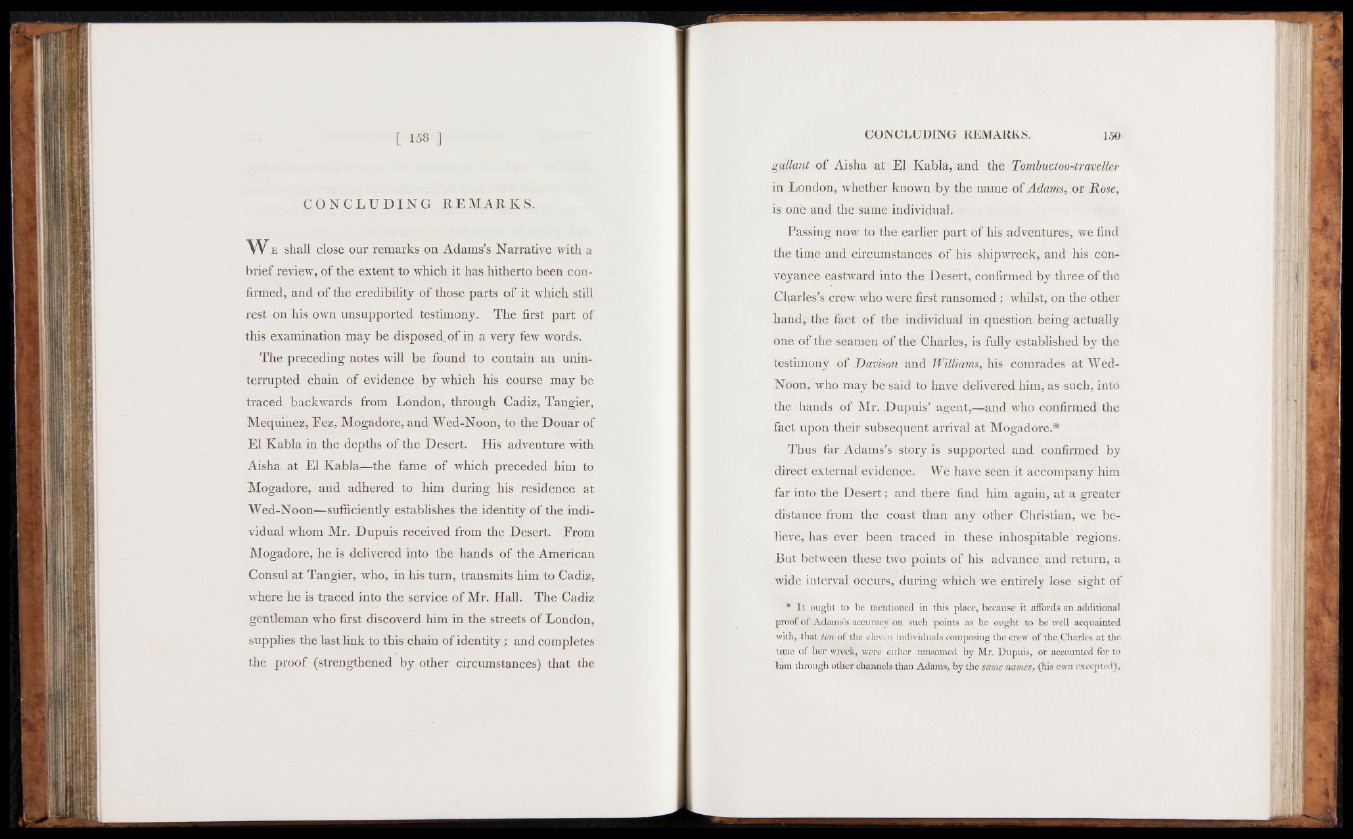
C O N C L U D I N G REMARKS .
W e shall close our remarks on Adams’s Narrative with a
brief review, of the extent to which it has hitherto been confirmed,
and of the credibility of those parts of it which still
rest on his own unsupported testimony. The first part of
this examination may be disposed,of in a very few words.
The preceding notes will be found to contain an uninterrupted
chain of evidence by which his course may be
traced backwards from London, through Cadiz, Tangier,
Mequinez, Eez, Mogadore, and Wed-Noon, to the Douar of
El Kabla in the depths of the Desert. His adventure with
Aisha at El Kabla—the fame of which preceded him to
Mogadore, and adhered to him during his residence at
Wed-Noon—sufficiently establishes the identity of the individual
whom Mr. Dupuis received from the Desert. From
Mogadore, he is delivered into the hands of the American
Consul at Tangier, who, in his turn, transmits him to Cadiz,
where he is traced into the service of Mr. Hall. The Cadiz
gentleman who first discoverd him in the streets of London,
supplies the last link to this chain of identity; and completes
the proof (strengthened by other circumstances) that the
gallant of Aisha at El Kabla, and the Tombuctoo-traveller
in London, whether known by the name of Adams, or Rose,
is one and the same individual.
Passing now to the earlier part of his adventures, we find
the time and circumstances of his shipwreck, and his conveyance
eastward into the Desert, confirmed by three of the
Charles’s crew who were first ransomed; whilst, on the other
hand, the fact of the individual in question being actually
one of the seamen of the Charles, is fully established by the
testimony of Davison and Williams, his comrades at Wed-
Noon, who may be said to have delivered him, as such, into
the hands of Mr. Dupuis’ agent,—and who confirmed the
fact upon their subsequent arrival at Mogadore.*
Thus far Adams’s story is supported and confirmed by
direct external evidence. We have seen it accompany him
far into the Desert; and there find him again, at a greater
distance from the coast than any other Christian, we believe,
has ever been traced in these inhospitable regions.
But between these two points of his advance and return, a
wide interval occurs, during which we entirely lose sight of
* I t ought to be mentioned in this place, because it affords an additional
proof of Adams’s accuracy on such points as he ought to be well acquainted
with, that ten of the eleven individuals, composing the crew of the. Charles at the
tune of her wreck, were either ransomed by Mr. Dupuis, or accounted for to
him through other channels than Adams, by the same names, (his own excepted),